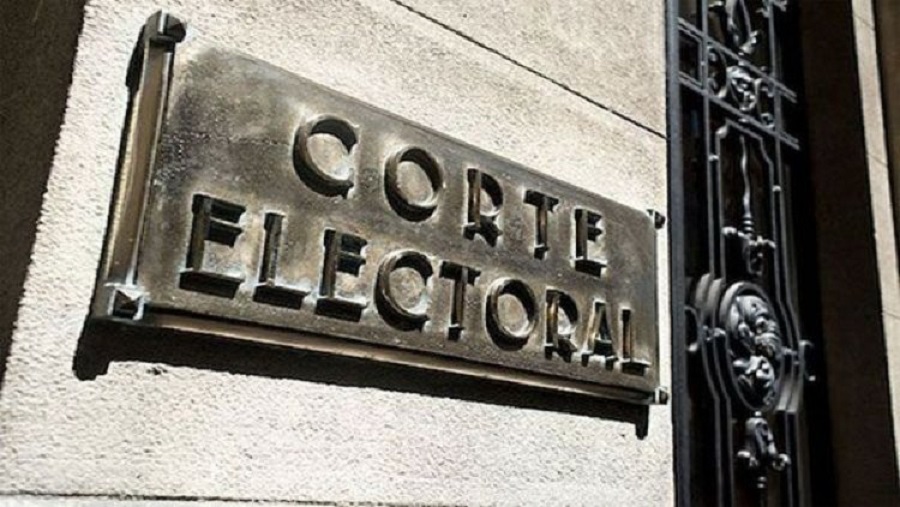RIO DE JANEIRO, BRAZIL – Opposition Frente Amplio (FA, left-wing) party and social organizations in July submitted more than 730,000 signatures to promote the referendum against 135 articles of the Law of Urgent Consideration (LUC), the right-wing ruling coalition’s roadmap enacted in June 2020.
In order to enable this process, 25% of the electoral roll is required, equivalent to 671,544 signatures, which were reached at noon, according to the National Referendum Committee, the group promoting the referendum.

“There will be a referendum! The Electoral Court validated the required signatures,” the group tweeted, with opposition leaders quickly retweeting and welcoming the news.
Hours later, Electoral Court Chief Justice José Arocena announced that the referendum will be held next March 27 and gave details of the voting: Yes sheets will be pink and No sheets will be light blue.
The Electoral Court will thus comply with the 120-day term imposed to call the referendum, which will be mandatory.
WHAT IS THE URGENT CONSIERATION LAW?
The LUC is Lacalle Pou’s flagship, who took office on March 1, 2020 after 15 years of leftist mandates.
It was enacted by the government majority in Parliament on July 10, 2020 and is one of the most important laws of the current administration, advocated by Lacalle Pou as “good, fair and popular.”
However, opposition voices spoke out against it and the Frente Amplio warned that rights and liberties were lost and that legislation was passed in favor of the most privileged.
The Frente Amplio called for the repeal of 135 of the law’s 476 articles, which reflect the main points of the ruling coalition’s program, covering issues as diverse as public security, education, economy or health.
Among the most challenged points are the relaxation of the use of police force, the regulation of the right to strike and the illegitimacy of pickets in public or private spaces which “affect the free circulation of persons, goods or services,” with the consequent power to dissolve them.
With respect to the Criminal Code, the LUC extends the minimum and maximum penalties for minors, in addition to limiting the semi-open regime for adolescents.
It also extends the concept of legitimate defense to a material asset, increases from 2 to 4 hours the time limit for the Police to inform the Prosecutor’s Office of the arrest of a person, and grants power to the police and military to search people and cars in “routine preventive” procedures.
It also provides for changes in the market of crude oil and its derivatives, eliminates the obligation of formal education in early childhood and reduces the role of the general directors of Education Councils.
Analysts believe that the referendum could become a sort of opinion poll on the President’s administration, who according to polls still enjoys acceptable levels of approval.

